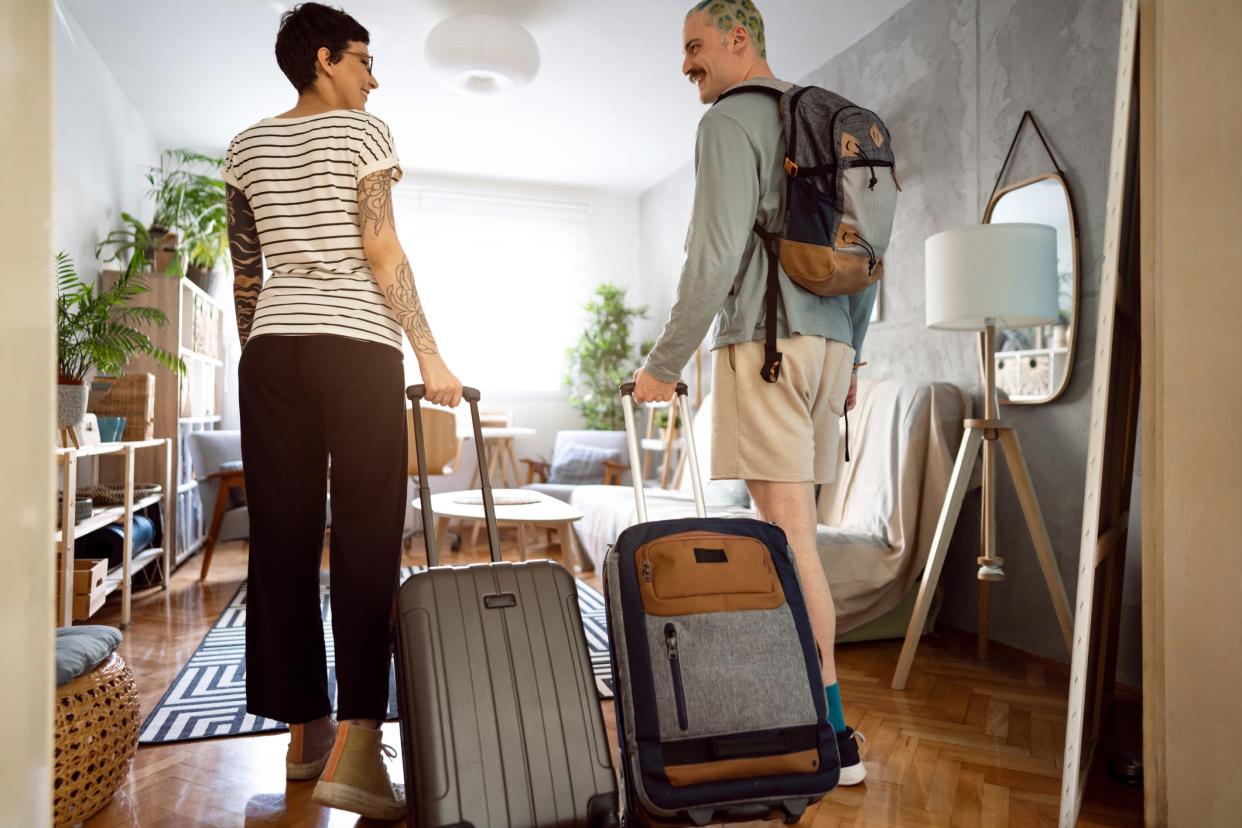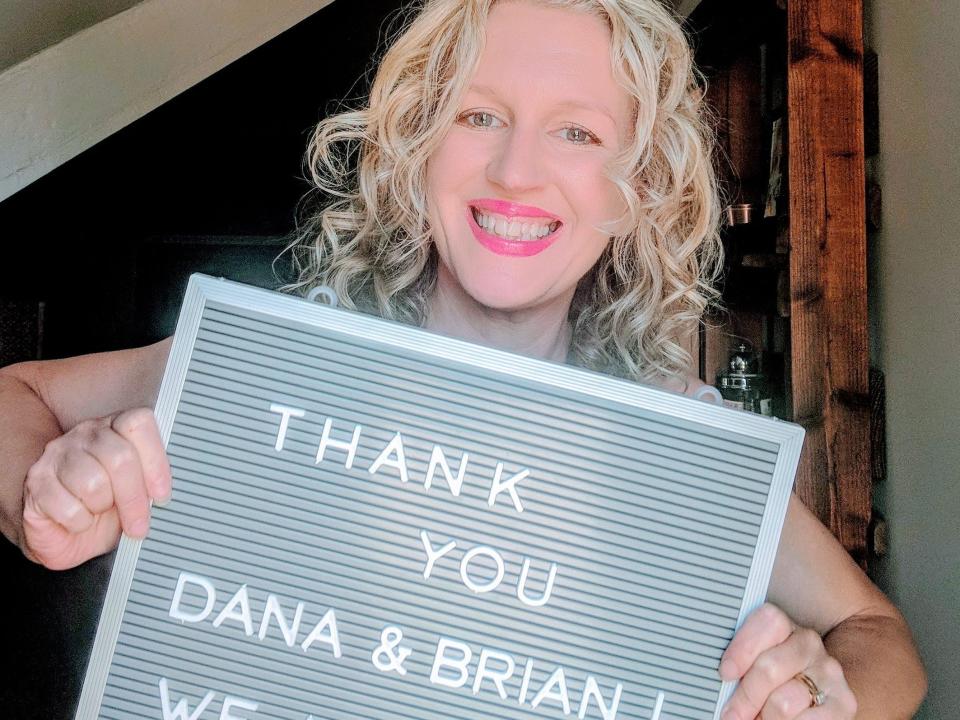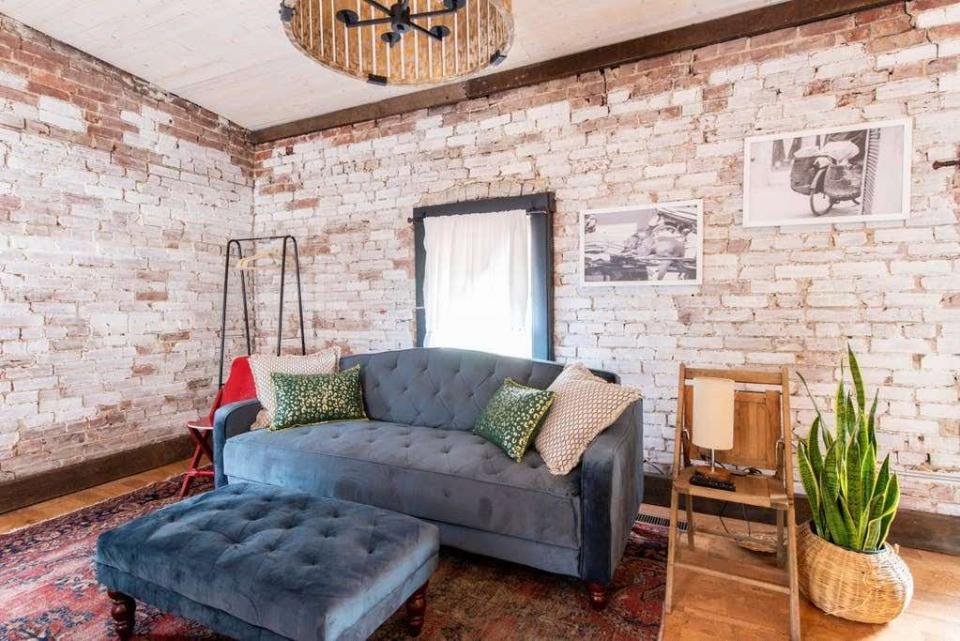We rented our house on Airbnb for 15 years. It was so much work that we had to stop.

Before Airbnb was even invented, my husband and I started renting our home to make extra money.
We bought multiple homes that we rented on Airbnb throughout the years.
Airbnb income is not passive, and now I don't rent my home anymore.
Renting your home to strangers for money wasn't even on the horizon when my husband and I bought our first house almost 20 years ago.
But the little bungalow in Louisville, Kentucky, wasn't far from the racetrack where the famous Kentucky Derby runs every May. I thought renting our house to race-goers would be an easy way to make a quick paycheck.
So in 2007, before Airbnb was even invented, we'd started what would eventually be called house-hacking — renting your own home to generate income to pay for itself. We could earn enough over the race weekend to cover three months of mortgage.
We were early Airbnb adopters
It didn't go well at first, though, with our first guests writing us a bad check. So when Airbnb came along with some guardrails to protect hosts, we were super early adopters.

Although it's commonplace now, in those early days, friends thought we'd lost it when we let strangers stay in our house. "What if they lick your plates and put them back?" I'll always remember one aghast friend asking.
Renting out that house led to the idea that we could Airbnb a $17,000 triplex in Detroit we bought in 2014 after I fell in love with the city while visiting. We were able to use the income to recoup the renovation costs, and we double-dipped by renting our Louisville house anytime we were in Detroit. We divided our time between cities, keeping that house for a year and a half. That experience propelled us to buy a sprawling Victorian in a historic neighborhood of Louisville in 2016.
"We could Airbnb the shit out of this!" my husband's text read when he sent me the $200,000 listing. A beautiful house that just needed some work, with a third floor guest suite and a carriage house, it had tons of potential as a short-term rental rental. We estimated we could probably cover the renovation cost and maybe even the mortgage with the income. Income that we thought would be passive.
It didn't turn out to be passive, though, at least when it came to the amount of work and worry that went into eventually becoming one of Airbnb's longest-tenured super hosts. Even switching to renting to travel nurses during COVID didn't come without stress, and we eventually sold the house in 2023.
Realtors know that people are looking for short-term rentals
I've been househunting and have lost count of the number of listings I've seen promising income from short-term rentals.
Now, we're not in the old days anymore, and most cities have licensing requirements for short-term rentals that restrict the number in any given area and impose tax collections. But not everyone plays by those rules, and sometimes, listing agents on behalf of sellers promote this revenue stream on houses that don't have the required license — and aren't even eligible for one.
After spending a lot of money and time getting the legal permits and licenses for my home, I think this practice is pretty unsavory — especially from a profession that's supposed to have strict ethical guidelines. Even when the listing truly does have legal income potential, it's not a magic bullet or a fast path to riches.

Maybe rentals can be considered passive by IRS definitions, but here's the truth from someone who's been doing this for more than 15 years: rentals are endless work.
Not just the cleaning, or calendar management, or the trying to delight guests or respond to issues. It's also the emotional labor of worrying about reviews. You're only ever as good as your last two or three, and I stressed every detail trying to keep up my all-five-star superhost status.
I've had so many issues with my rental
Owning a home built in the late 1800s can be a source of worry in the best of circumstances. However, inviting a rotating cast of strangers under the roof, strangers who can leave reviews that can make or break your business, brings its own host of additional worries.
Just like I could never turn off my phone in case a guest needed something, I couldn't turn off the worry, either.
When it rained, I worried about leaks — which happened. When it was cold, I worried about the mini-split HVAC going out, which it did — on a freezing Christmas Day. When it was hot, I worried the AC couldn't keep up — which it often couldn't in a 130-year-old third-floor space where guests thought they could set the temperature to 60 on 100-degree days.
But the money was good when it was good, so it was worth it. Until competition ratcheted up, and with that, a push from Airbnb to discount prices. Even before COVID, I'd grown tired of their incessant reminders to cut my price. So when the pandemic hit, I made the pivot to renting to travel nurses at my two spaces. That wasn't a ton less money, but a lot less work. Instead of doing laundry and cleaning and answering a fresh batch of questions every two or three days, it was every three months.
I recommend people do their homework before becoming hosts
To anyone tempted to buy a property just for its rental potential, I say proceed with caution.
Do your own homework to make sure you can legally rent it; don't rely on the listing claims. Check local listings to see how much competition you'll have and how much they're getting. Consider how much time you can siphon from your other job to run your rental, and what that will cost. Evaluate your budget to make sure you can carry the mortgage indefinitely if misfortune — pandemic, natural disaster, terrorist attack, major repairs, a pest infestation — strikes and you lose that income.
As for me, my new home is a single family. Nope, no income to subsidize the mortgage, but also no suitcases rolling around above my bedroom, no nagging worry about what-ifs, and nobody to worry about pleasing but, well, myself.
Read the original article on Business Insider

